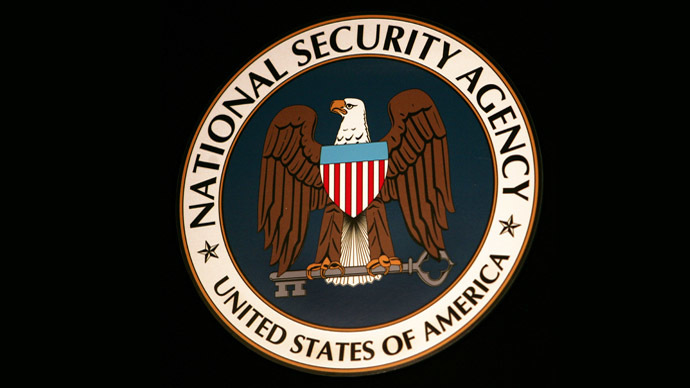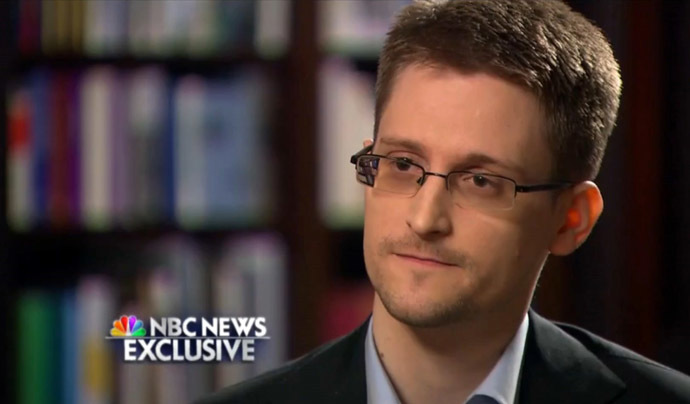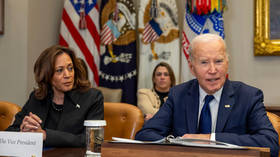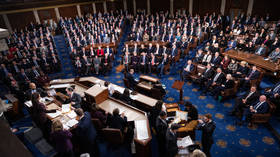‘US won’t stop spying on others while everybody else doing it’

The revelations of Snowden have shown that mass spying is possible, and many people have found that their states do exactly the same things, only on a smaller scale, security researcher Karsten Nohl told RT.
RT:Snowden's revelations exposed America's national security agency to the world. But were they really ground breaking, or just stated what everybody knew?
Karsten Nohl: I think we should stop being surprised that NSA has access to data we put in the internet. It’s clear that if they can read our emails, that can also look at the pictures attached to them. And it’s clear if the technology exists that can analyze pictures and Google, Facebook and other companies do it very intensely, then of course the NSA that has a $10 billion annual budget also has access to this technology.
So everything that anybody can analyze on the internet, private or state, the NSA has access to and will analyze it. And these revelations will just keep adding up to the full picture of the NSA analyzing the entirety of everybody’s life as much as it is available on the internet.
RT:Various information technologies are developing all the time, increasing their security abilities. How do the spy agencies get information then?
KN: As people change communication patterns, the spy agencies have to change their analysis methods. So a lot more information these states communicated through pictures, video, audio, and of course agencies will chase this information. Other companies do it too. For instance, Facebook is analyzing our pictures very intensely to understand out wishes, our fears physically, our marketability potential, what advertisement we have to show to people to get them to buy stuff. And then the NSA uses the same type of arguments to ask different questions of course: “Who is the enemy of the US?”, “Who is conducting the terrorist attacks?” or could potentially be. But the methods are very much the same. There should be no secret that such technology exists. Of course the NSA is using it.
RT:What changes can bring this NSA scandal if we look at the spy agencies and various internet companies and services?
KN: I think the way the NSA operates has already changed slightly and that does much more questioning by the people are allowed to question the NSA, being the US Senate or the voters in the US. But also it will bring about changes in the way the NSA operates by everybody else just protecting the data better. Many services have in recent months switched on encryption, which they could have done years ago. Google has started encrypting its data and connections, the Yahoo and Microsoft have started encrypting the front end, which Google had been doing for a long time. Services like WhatsApp switched on the encryption.

It’s becoming harder and harder to collect information on the internet, but still there is so much to go around that I don’t think the job of the NSA is very hard yet. But if it is trajectory towards more encryption, more privacy technology continues, hopefully, we’ll starve the intelligence organizations of much of the information they have access today.
RT:Has the US itself changed, or will it go on with the spying as if nothing happened?
KN: It is questionable whether those people who do have a power to change the way the NSA operates, mostly the US government of course, have an incentive to do so. I don’t think the current discussion has shown that the US is the only perpetrator in the world to give up its internet spying potential. The revelations of Snowden have shown what is possible, and many countries have found that their states do exactly the same things, maybe on a smaller scale.
I don’t think the US is quite in the position when they want to stop spying on others while everybody else does the same. It’s the same like with military. Most people would agree if there are no armies in the world any more we’ll be in a better place. But even if one country has an army the surrounding countries, and ultimately everybody, will have one. The same goes for the spying agencies in the internet.
RT:Edward Snowden is not the first whistleblower to reveal America's secrets to the world. But could he be the one that damaged US interests the most? And whether Snowden’s revelations could be considered as treason?
KN: The whole concept of the whistleblower in my understanding is that we accept small crimes being committed for larger crimes to be uncovered, and this concept goes with whistleblowing of course. We allow our police to buy drugs to find drug dealers, our spy agencies to hack our computers to find terrorists. So the question really isn’t whether Snowden committed a crime, but whether he uncovered larger crimes and that of course is the case, not just in the US, but in many countries. When crimes are committed we wouldn’t know about it if it were not for Snowden.
The statements, views and opinions expressed in this column are solely those of the author and do not necessarily represent those of RT.
The statements, views and opinions expressed in this column are solely those of the author and do not necessarily represent those of RT.












